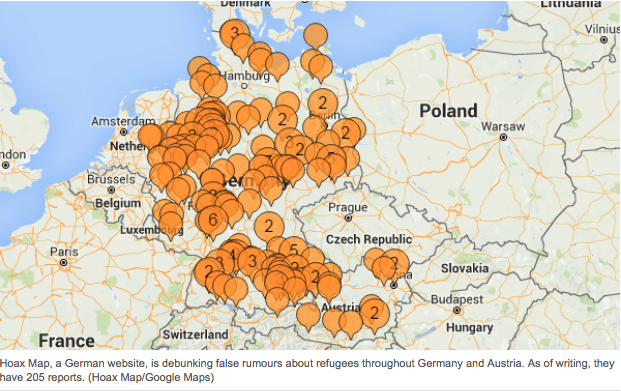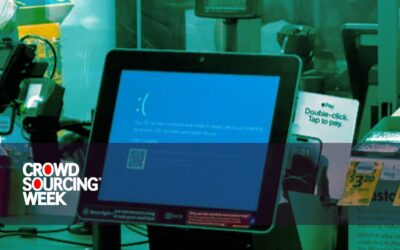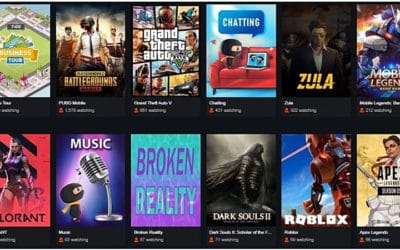Check out our curated weekly roundup of the breaking news and must-read thought leadership pieces on the crowd economy spotted by the Crowdsourcing Week team.
Crowdsourcing to debunk social media news in Germany
The refugee crimes are going viral on social media in Germany. The only solution for Karolin Schwartz and Lutz Helm was to turn to crowdsourcing. Read the whole story via Forbes to find out how they came up with the idea of creating an online platform to debunk fake rumours.
When she saw so many reports of supposed refugee crimes go viral on social media, with little or no fact-checking, German business consultant Karolin Schwarz, 30, decided to take the matter into her own hands. Together with friend and developer Lutz Helm, she created and launched Hoaxmap, an online platform aimed at debunking fake rumours, separating the wheat from the chaff. Scarcity of news was not an issue: in just a week since the February 8th launch, Schwarz had collected and debunked more than 240 hoaxes, 187 of them from Germany, according to an estimate made by national newspaper Sueddeutsche Zeitung, and the rest coming from Austria and Switzerland. The alleged location of each of them is pinpointed on the map, and clicking on a pin, users can read a summary of the incident, with a link to where the story is refuted.
Different ways to crowdsourcing indoor location data at Mobile World Congress
Sensewhere and InLocoMedia use crowdsourcing concept for their indoor location data using Wi-Fi, but in different ways. Check out Computer World to see how they are using it.
InLocoMedia, from Recife, Brazil, provides a proximity-based messaging service to local app developers and advertisers in return for expanding its mapping database. Edinburgh-based Sensewhere provides its indoor location service royalty-free to its first client and major investor, Chinese Internet portal Tencent.
Crowdsourcing news platform Newzulu rearranges its internal operations
Crowd-sourced media provider, Newzulu, had decided to rearrange its operation to target the most lucrative content market in the world: North America via Finfeed.
Newzulu (ASX:NWZ), a growing name in crowdsourcing news, has decided to undergo a wholesale restructuring focused on reducing costs and raising efficiency to improve future performance. Currently operating in half a dozen locations around the globe (New York, Paris, LA, Toronto, Sydney and London), NWZ has relocated its headquarters to New York as part of an efficiency drive aimed at reducing the company’s entire cost base, but also, to position itself in the most lucrative content market in the world: North America.
Crowdsourced data to pin tick-borne disease in the US
Northern Arizona University, in partnership with the Bay Area Lyme Foundation, is giving free tick testing in order to get better understandings from data received regarding Lyme disease via News NAU.
The foundation hopes to use this crowd-sourced data as a vehicle for gaining a greater understanding of the geography of tick-borne diseases in the United States. If successful in accumulating data, it will be the first crowd-sourced study of its kind. “This new initiative has the potential to gather extensive data on the geographic distribution and future expansion of ticks carrying pathogens that causes various diseases in humans, and could allow us the opportunity to better understand where in the U.S. we are at a greater risk of acquiring these diseases,” said Nieto, who cited climate change among other reasons that the risk of acquiring Lyme exists in areas outside the known endemic Northeast.
Zero Percent launches a crowdfunding platform to prevent food waste
Zero Percent has launched a crowdfunding platform to raise money for non-profit organizations that cannot afford to pick up the food via Chicago Tribune.
Nonprofits using the platform don’t have to pay, they just have to show up at the restaurants and get the food. As of December, the startup’s logistical solutions have helped keep 1 million pounds of food out of landfills, Karmani said. There are 80 nonprofits receiving food, but 250 have signed up.
[Photo credit: CBC]
There are tons of fantastic stories out there. What else caught your eye this week? Did you come across some breaking news or a good thought piece?




0 Comments